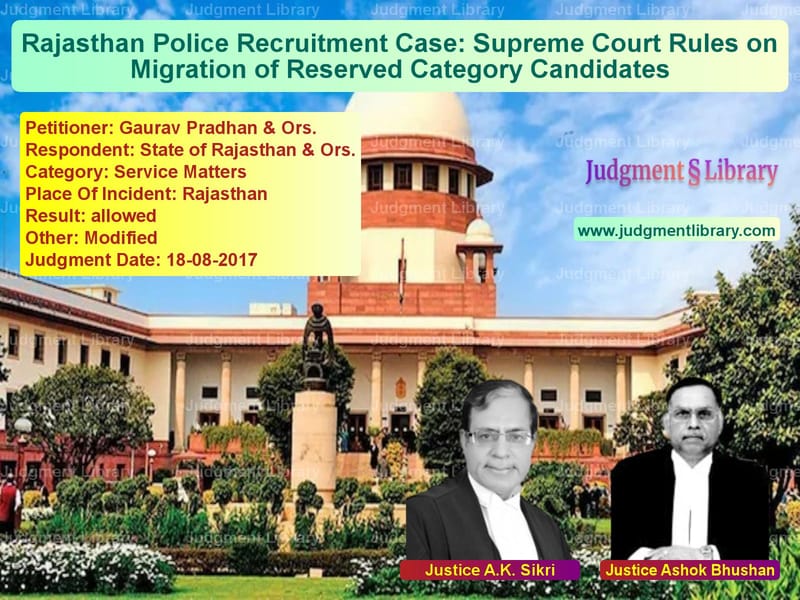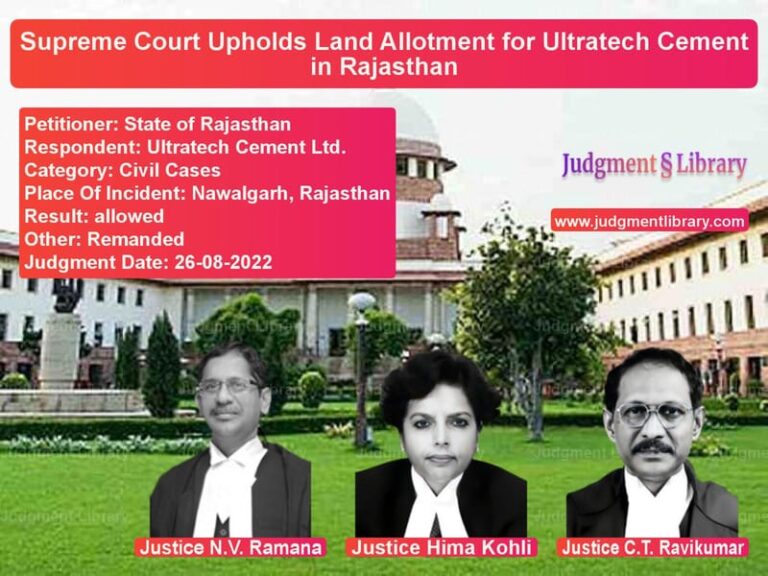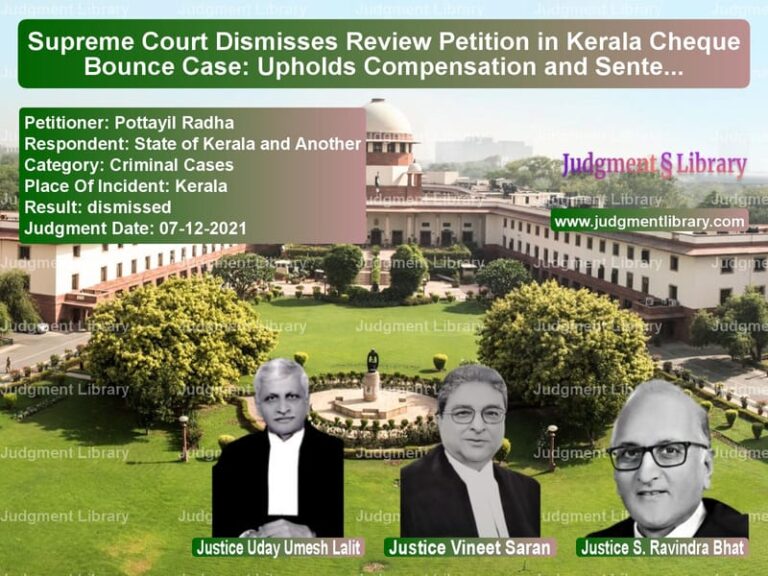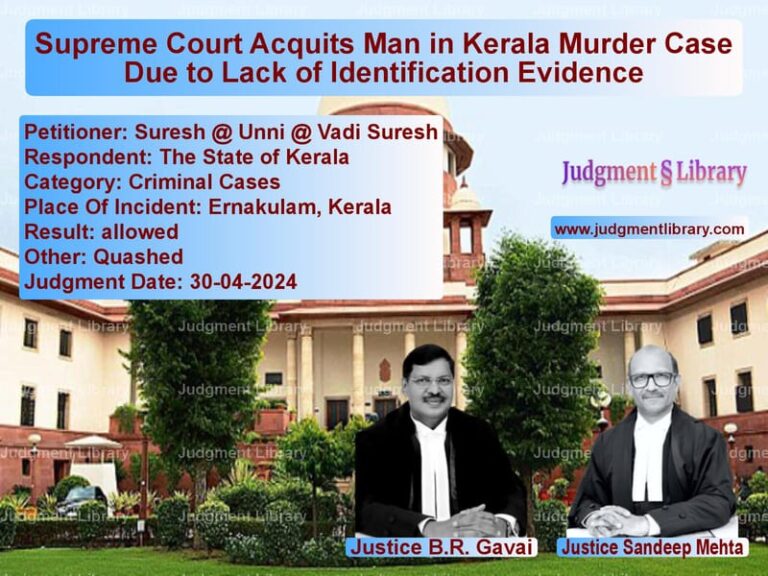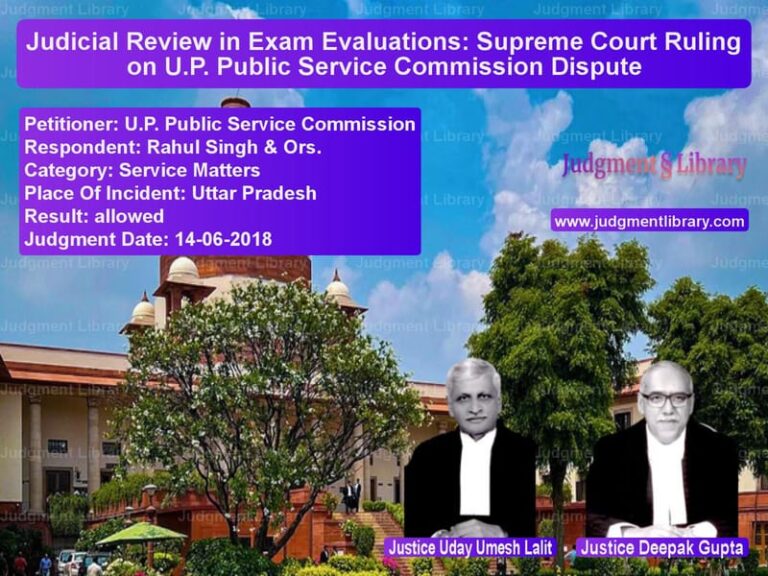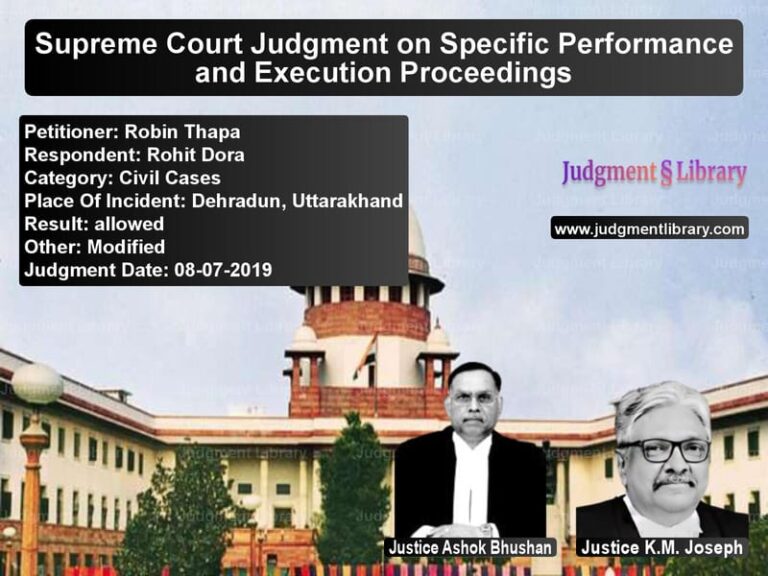Rajasthan Police Recruitment Case: Supreme Court Rules on Migration of Reserved Category Candidates
The case of Gaurav Pradhan & Ors. vs. State of Rajasthan & Ors. revolved around the migration of reserved category candidates into the general category in police recruitment. The Supreme Court was tasked with deciding whether candidates who availed themselves of age relaxation could be counted in the general category based on their merit.
Background of the Case
The dispute arose from recruitments for the posts of constables and sub-inspectors in the Rajasthan Police, conducted through advertisements issued in 2010. The selection process included various stages, and during the process, a new circular was issued by the Rajasthan government on May 11, 2011, allowing candidates from reserved categories to be counted as general category candidates even if they had availed of age relaxation.
Prior to this, the applicable circular, dated June 24, 2008, stated that only those reserved category candidates who had not taken any concession (except for the application fee) could be considered in the general category. The change in policy sparked legal challenges from general category candidates who argued that their rightful seats were being taken by reserved category candidates who had availed themselves of relaxation benefits.
Arguments Presented
Petitioners’ Arguments (General Category Candidates)
The petitioners contended that:
- The May 11, 2011, circular should not apply to the 2010 recruitment process since the process had begun before the circular was issued.
- Allowing reserved category candidates to migrate into the general category despite availing of age relaxation was unfair and against established legal principles.
- The previous circular of June 24, 2008, which only permitted migration of candidates who had not taken any benefits apart from fee concession, should have been followed.
- Their rightful selection was denied due to the flawed implementation of the new policy.
Respondents’ Arguments (State of Rajasthan & Reserved Category Candidates)
The respondents countered by stating that:
- The May 11, 2011, circular was aimed at ensuring equal opportunity for all candidates and should be applied retrospectively.
- Relaxation in age was not a relaxation in merit; hence, candidates who performed better than the general category cutoff should be eligible for migration.
- Appointments had already been made based on the new policy, and altering the selection process would create administrative chaos.
Supreme Court’s Observations
The Supreme Court critically analyzed the legal framework and previous precedents on the matter. The Court observed:
“The reservation under Article 16(4) does not operate like a communal reservation. It may well happen that some members belonging to SC/ST get selected in the open competition field on the basis of their own merit; they will not be counted against the quota reserved for SC/STs; they will be treated as open competition candidates.”
However, the Court also emphasized that the criteria for migration into the general category had been clearly defined in the earlier circular (June 24, 2008). The sudden change introduced by the May 11, 2011, circular altered the selection criteria after the recruitment process had started.
The Court stated:
“Recruitment commenced by the advertisement dated 14.10.2010 and 25.10.2010. At that time, only the circular dated 24.06.2008 was in force; hence, the subsequent circular dated 11.05.2011 cannot be applied to this recruitment.”
Final Judgment
The Supreme Court ruled in favor of the petitioners and held that:
- The May 11, 2011, circular could not be retrospectively applied to the 2010 recruitment process.
- Candidates who availed themselves of age relaxation could not be migrated into the general category.
- The appointments made based on the flawed application of the circular should be reviewed.
- However, since many reserved category candidates had already been working in these positions for more than five years, they would not be displaced.
- To balance equities, the government must appoint general category candidates who had been wrongly denied selection.
- If there were no available vacancies, the government should create supernumerary posts to accommodate the wrongly excluded candidates.
The Supreme Court concluded:
“The State is directed to work out and issue appropriate orders for appointment of such candidates who were as per their merit belonging to the general category, entitled for appointment, within three months.”
Implications of the Judgment
This ruling has significant implications for future recruitment processes and reservation policies:
- It reinforces the principle that reservation policies and migration rules must be clearly defined before the recruitment process starts.
- Retrospective changes in selection criteria cannot be applied to ongoing recruitment processes.
- Age relaxation is a form of concession that can impact eligibility for migration to the general category.
- The judgment ensures that reserved category candidates who benefited from policy changes do not suffer undue consequences, while also protecting the rights of general category candidates.
Conclusion
The Supreme Court’s ruling in the Rajasthan Police recruitment case upholds the sanctity of recruitment rules and prevents arbitrary changes that could impact the fairness of the selection process. By ensuring that general category candidates wrongly denied selection are accommodated, while also preserving the jobs of those who were already appointed, the judgment strikes a balance between legal principles and practical considerations.
Don’t miss out on the full details! Download the complete judgment in PDF format below and gain valuable insights instantly!
Download Judgment: Gaurav Pradhan & Ors vs State of Rajasthan & Supreme Court of India Judgment Dated 18-08-2017.pdf
Direct Downlaod Judgment: Direct downlaod this Judgment
See all petitions in Recruitment Policies
See all petitions in Employment Disputes
See all petitions in Promotion Cases
See all petitions in Judgment by A.K. Sikri
See all petitions in Judgment by Ashok Bhushan
See all petitions in allowed
See all petitions in Modified
See all petitions in supreme court of India judgments August 2017
See all petitions in 2017 judgments
See all posts in Service Matters Category
See all allowed petitions in Service Matters Category
See all Dismissed petitions in Service Matters Category
See all partially allowed petitions in Service Matters Category

